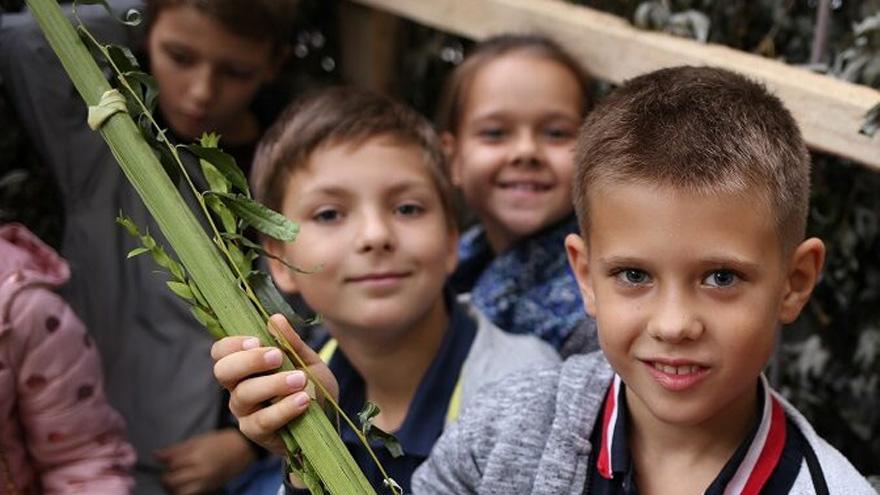There is a legendary story from an ORT school in Ukraine, told and retold over the years, about a student excitedly returning home from class one Friday afternoon and asking his mother whether they could light Shabbat candles together.
“But we are not Jewish,” the boy’s mother tells him.
When he pleads again the following Friday afternoon, his grandmother hears the conversation. She quietly slips away to the basement, returning with a dusty pair of candlesticks. She sets them on the table, and tells her daughter and grandson, “Actually, we are Jewish.”
Engaging young people to ensure they develop as proud, knowledgeable and active Jews is as relevant for ORT today as it was in 1881 and 1941.
We are continuing to build a strong and viable Jewish future. As a concept, tikkun am—healing the people—is vital to us. Its important counterpart, tikkun olam—healing the world—is perhaps more widely understood. While it has a global outlook, tikkun am is more local.
For tikkun olam to work as a Jewish value, going out into the world and helping others, it is essential for the Jews engaging with it to be familiar and comfortable with a deep understanding of their own Judaism. It is tikkun am that provides the specifically Jewish lens of sustainability through which we view the world.
At ORT, we are working for a healthy and constructive balance between the two; they should support each other and ensure that we are not just looking at the outside world, but focusing deeply on Jewish people themselves.
These concepts need action, not only words. How do we support Jewish communities in their time of need and help Jewish peoplehood to thrive? The engine, as in all we do, is education and a focus on giving people the skills they need.
The current challenges are clear. In many of our communities worldwide, lives have been irrevocably changed by the coronavirus pandemic. In Russia and Ukraine, our students have lost parents and grandparents to COVID-19, and are living with the emotional and financial consequences. In Brazil and Argentina, severely dented economies mean fewer parents can afford the fees needed to continue their child’s education.
Added to this is the global rise in anti-Semitism, seen in politics, culture and on the streets, affecting Jews on every continent. In many places, the ORT school is the city or country’s most significant Jewish institution, making it a beacon for positive engagement in the wider world, but tragically a target for potential hatred.
The third issue is assimilation. Intermarriage rates in almost all Jewish communities have risen significantly in the past 30 years with the likely inevitabilities this brings for the next generation’s prospects of having a Jewish spouse or Jewish children.
I want all children to have the knowledge, experience and passion to be carers for both the wider global community and our own local Jewish communities.
We can already see the impact of this approach. In our schools across Eastern Europe, Jewish identity has been strengthened and communities that suffered tremendously in the past are flourishing. Shabbat candles are being lit once again.
This is what tikkun am can mean in the 21st century: Jews investing in our own identity, culture, religion, rituals and state to ensure a meaningful Jewish future with young people who are able to engage in the world with pride and knowledge.
Tikkun am is our pledge to produce mensches, to build stronger Jewish communities and to play our part in the global Jewish family.
Dan Green is director general and CEO of World ORT, the global education network driven by Jewish values.


























